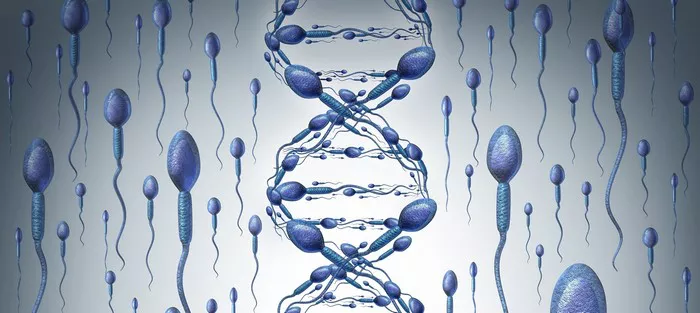Retrograde ejaculation is a medical condition in which semen, instead of being expelled out through the urethra during ejaculation, is redirected backward into the bladder. This phenomenon occurs due to the malfunctioning of the bladder neck muscles, which fail to close properly during ejaculation, allowing the semen to enter the bladder.
Commonly referred to as a “dry orgasm,” retrograde ejaculation results in the absence of semen during ejaculation, causing the ejaculate to appear clear rather than milky. This condition can significantly impact a man’s ability to father a child, as it interferes with the delivery of sperm to the female reproductive tract during sexual intercourse.
Symptoms of Retrograde Ejaculation
The primary symptom of retrograde ejaculation is the absence of semen during ejaculation. Instead, the ejaculate may appear clear, with no visible semen. Additionally, individuals experiencing retrograde ejaculation may notice cloudy urine following orgasm, as semen is redirected into the bladder and expelled with urine. Other symptoms may include a decreased sensation of orgasm and infertility.
Causes of Retrograde Ejaculation
Retrograde ejaculation can occur due to various underlying causes, including:
1. Surgical Procedures: Surgeries involving the bladder, prostate, or urethra can disrupt the normal function of the bladder neck muscles, leading to retrograde ejaculation. Procedures such as transurethral resection of the prostate (TURP) or bladder neck surgery may increase the risk of this condition.
2. Nerve Damage: Damage to the nerves that control ejaculation can interfere with the coordination of bladder neck muscles, causing retrograde ejaculation. Conditions such as diabetes, multiple sclerosis, or spinal cord injuries can damage these nerves and disrupt normal ejaculation.
3. Medications: Certain medications used to treat conditions like high blood pressure, prostate enlargement, or depression can interfere with ejaculation by affecting nerve signals or muscle function. Medications such as alpha-blockers, antidepressants, or antipsychotics may increase the risk of retrograde ejaculation as a side effect.
4. Medical Conditions: Medical conditions such as diabetes, bladder neck sclerosis, or conditions affecting the bladder or urethra can contribute to retrograde ejaculation by impairing muscle function or nerve transmission.
Impact on Fertility
Retrograde ejaculation can significantly impact fertility by preventing the normal delivery of semen during ejaculation. Semen contains sperm, which are essential for fertilizing an egg and initiating pregnancy. When semen is redirected into the bladder instead of being expelled through the urethra, sperm cannot reach the female reproductive tract to fertilize an egg. As a result, conception becomes difficult or impossible.
Diagnosis of Retrograde Ejaculation
Diagnosing retrograde ejaculation typically involves a thorough medical history review, physical examination, and various tests to assess ejaculatory function. These may include:
1. Medical History: The healthcare provider will inquire about symptoms, medical history, past surgeries, and medications that may contribute to retrograde ejaculation.
2. Physical Examination: A physical examination may be performed to evaluate the genitals, prostate, and neurological function.
3. Urodynamic Testing: Urodynamic tests assess bladder and urinary function, helping to determine if retrograde ejaculation is occurring. These tests may include measuring bladder pressure during ejaculation or assessing the presence of sperm in a urine sample collected after ejaculation.
4. Semen Analysis: A semen analysis may be conducted to evaluate the quantity and quality of sperm present in the ejaculate. In cases of retrograde ejaculation, semen analysis may reveal a decreased sperm count or absence of sperm in the ejaculate.
Treatment Options
Treatment options for retrograde ejaculation depend on the underlying cause and whether the individual is trying to conceive. Some potential treatment options include:
1. Medication Adjustment: If retrograde ejaculation is caused by medications, adjusting or discontinuing the offending medication may alleviate the condition. However, this approach should be done under medical supervision to ensure proper management of the underlying condition.
2. Alpha-Adrenergic Agonists: Medications such as pseudoephedrine or midodrine may be prescribed to improve bladder neck muscle function and prevent semen from entering the bladder during ejaculation.
3. Sperm Retrieval Techniques: In cases where fertility is desired, sperm retrieval techniques such as sperm aspiration or testicular sperm extraction (TESE) may be performed to collect sperm directly from the testes for use in assisted reproductive techniques such as in vitro fertilization (IVF).
4. Fertility Treatments: For couples struggling with infertility due to retrograde ejaculation, fertility treatments such as intrauterine insemination (IUI) or IVF may be recommended to bypass the issue and facilitate conception.
Coping Strategies
Dealing with infertility related to retrograde ejaculation can be emotionally challenging. It’s essential for individuals and couples to seek support and implement coping strategies to navigate this journey:
1. Open Communication: Communicate openly with your partner about your feelings, concerns, and treatment options. Sharing your emotions and supporting each other can strengthen your relationship during this challenging time.
2. Seek Support: Seek support from healthcare providers, counselors, or support groups specializing in infertility. Connecting with others who are experiencing similar challenges can provide comfort and encouragement.
3. Self-Care: Practice self-care techniques such as mindfulness, exercise, and hobbies to reduce stress and maintain overall well-being during the fertility treatment process.
4. Explore Alternative Paths to Parenthood: Consider alternative paths to parenthood such as adoption or surrogacy if fertility treatments are not successful or if you prefer alternative family-building options.
Success Stories
While dealing with retrograde ejaculation and infertility can be daunting, many individuals have successfully managed the condition and achieved their goal of parenthood. Testimonials and success stories from individuals who have undergone fertility treatments or alternative paths to parenthood can offer hope and inspiration to others facing similar challenges.
Conclusion
In conclusion, retrograde ejaculation is a medical condition that can significantly impact fertility by preventing the normal ejaculation of semen necessary for conception. It is essential for individuals experiencing symptoms of retrograde ejaculation to seek medical evaluation and explore treatment options tailored to their needs and goals. With proper diagnosis, treatment, and support, individuals and couples can navigate the challenges of infertility and work towards building their desired family.























